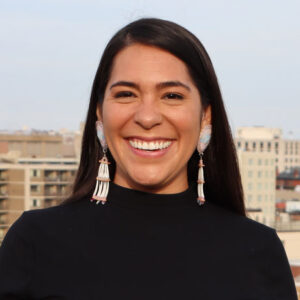Montessori public school pre-K programs and the school readiness of low-income Black and Latino children.
Ansari, A. & Winsler, A. (2014)
Journal of Educational Psychology, 106(4), 1066–1079
This study used data from the Miami School Readiness Project to examine the school readiness gains of 7,045 low-income Latino and 6,700 low-income Black children. Researchers compared students from two types of Title I pre-K public school programs: those in programs using the Montessori curriculum and those in more conventional programs using the High/Scope curriculum with a literacy supplement. “Latino children in Montessori programs began the year at most risk in pre-academic and behavioral skills, yet exhibited the greatest gains across these domains and ended the year scoring above national averages.”
Creative giftedness and educational opportunities.
Besançon, M., Lubart, T., & Barbot, B. (2013)
Educational & Child Psychology, 30(2), 79–88
This study examined creative potential, defined as the “latent ability to produce original, adaptive work,” in elementary-aged children in Montessori and traditional schools in France. The Montessori students performed significantly better of tasks of divergent and convergent thinking than their traditional school peers. Furthermore, the Montessori group yielded a greater number of students who qualified as “creative-gifted.” The authors conclude that Montessori school contexts effectively promote the development of creative potential.
A comparison of reading and math achievement for African American third grade students in Montessori and other magnet schools.
Brown, K. E., & Lewis, C. W. (in press).
Journal of Negro Education, 86(4)
This study compared mean reading and math state standardized test scores for 1600 African American third grade students in reading and math in Montessori and other magnet schools within the same region of a single urban district in North Carolina. Students from the Montessori schools scored significantly higher in reading their counterparts in the other magnet programs, though math scores were not significantly different. Notably, the largest school in the other magnet group was a STEM school, with an explicit focus on math. These results indicate that African American students in public Montessori schools at grade three perform at least as well as their peers on traditional measures of academic achievement in math and actually perform better in reading. This is particularly remarkable given the lack of attention to testing and standardized test preparation characteristic of Montessori environments.
Interventions shown to aid executive function development in children 4 to 12 years old.
Diamond, A., & Lee, K. (2011).
Science, 333(6045), 959-964
To be successful takes creativity, flexibility, self-control, and discipline. Central to all those are executive functions, including mentally playing with ideas, giving a considered rather than a compulsive response, and staying focused. This review compares research results from various activities and curricula that have been shown to improve children’s executive function, including computerized training, aerobic exercise, martial arts and mindfulness practices, and classroom curricula including Montessori education. In a comparison of curricula and curricula add-ons, the Montessori approach is shown to meet more criteria for the development of executive function for a more extended age group.
High school outcomes for students in a public Montessori program.
Dohrmann, K. R., Nishida, T. K., Gartner, A., Lipsky, D. K., & Grimm, K. (2003).
Journal of Research in Childhood Education, 22 (2), 205–217
This longitudinal study of Milwaukee high school graduates showed that students who had attended Montessori preschool and elementary programs significantly outperformed a peer control group on math/science scores. “In essence,” the study found, “attending a Montessori program from the approximate ages of three to 11 predicts significantly higher mathematics and science standardized test scores in high school.
Four seventh grade students who qualify for academic intervention services in mathematics learning multi-digit multiplication with the Montessori checkerboard.
Donabella, M. A., & Rule, A. C. (2008).
TEACHING Exceptional Children Plus, 4(3). Retrieved from ERIC:
http://files.eric.ed.gov/fulltext/EJ967477.pdf
This article describes the positive impact of Montessori manipulative materials on four seventh grade students who qualified for academic intervention services because of previous low state test scores in mathematics. The article presents a brief introduction to the Montessori approach to learning, an overview of Montessori mathematics, and an explanation of the Checkerboard for Multiplication with related multiplication manipulatives. Pretest/posttest results of the four students indicated that all increased their understanding of multiplication. The results of an attitude survey showed students improved in enjoyment, perceived knowledge, and confidence in solving multiplication problems.
East Dallas Community Schools. (2010)
Summer newsletter 2010
East Dallas Community Schools operates two inner-city Montessori schools that serve an ethnically and culturally diverse group of primarily low-income families. In over 30 years of using the Montessori approach to education, EDCS has proved that all children, regardless of race or income, can succeed in school when you start young and involve parents. In a neighborhood in which the high school dropout rate is over 50%, children who attend EDCS have graduated from high school at a rate of 94%, with 88% of those graduates attending college. A ten-year study of standardized test scores found that third grade students’ average scores were in the top 36% nationwide in reading and math. Even though many of these children start school without speaking any English, 100% of the children test as fluent in English by the end of the third grade
A 3-year study of self-regulation in Montessori and non-Montessori classrooms.
Ervin, B., Wash, P. D., & Mecca, M. E. (2010).
Montessori Life, 22(2), 22-31.
Researchers compared 256 Montessori and non-Montessori students in kindergarten, first-and second-grades from three public school districts in South Carolina. They found that Montessori children have comparatively higher levels of self-regulation and more consistent growth in self-regulation skills over the 3-year period of the study. Further, researchers found an association between students’ levels of self-regulation and their academic success.
Montessori: The science behind the genius.
Lillard, A. S. (2005).
New York, NY: Oxford University Press.
A comprehensive review of the scientific literature that demonstrates how current research validates Dr. Montessori’s observations about how children learn, particularly with regard to movement and cognition, the detrimental effect on motivation of extrinsic rewards, the beneficial effect of order in the environment, and the academic and emotional benefits of freedom of choice.
Preschool children’s development in classic Montessori, supplemented Montessori, and conventional programs.
Lillard, A. S. (2012).
Journal of School Psychology, 50, 379–401. doi:10.1016/j.jsp.2012.01.001
Angeline Lillard examines the impact of Montessori implementation fidelity. Her study found that children in classroom with high fidelity implementation showed significantly greater school-year gains on outcome measures of executive function, reading, math, vocabulary, and social problem-solving, than children in low fidelity or conventional classrooms. Lillard concludes by suggesting that mixed results on outcomes for Montessori students from previous research may be explained by Montessori implementation fidelity.
The early years: Evaluating Montessori education.
Lillard, A., & Else-Quest, N. (2006).
Science, 313, 1893–1894. doi: 10.1126/science.1132362
Researchers compared Montessori students with students in other school programs, and found that 5-year-old children who completed the three-year cycle in the Montessori preschool program scored higher on both academic and behavioral tests than the control group. The study also found that 12-year-old Montessori students wrote more sophisticated and creative stories and showed a more highly developed sense of community and social skills than students in other programs.
Academic achievement outcomes: A comparison of Montessori and non-Montessori public elementary school students.
Mallett, J. D., & Schroeder, J. L. (2015).
Journal of Elementary Education, 25(1), 39-53.
This study compared reading and math achievement of over 1,000 students in grades one through five in public Montessori and non-Montessori schools in Texas. No statistically significant differences in reading or math achievement were found in grades one through three, but Montessori students in grades four and five performed significantly better in both subjects than their peers in traditional schools.
Comparison of the place value understanding of Montessori elementary students.
Reed, M. K. (2008).
Investigations in Mathematics Learning, 1(1), 1-26.
Reed randomly selected first-through third-grade students in one Montessori and one Catholic school for this study. After collecting data from ninety-three students, she found that Montessori students performed significantly better on conceptual place value math tasks, and were as adept at solving procedural math problems as their non-Montessori peers. By third grade, there was not a significant difference with regards to ability to solve the math tasks, but Montessori students demonstrated more flexible, conceptual thinking in their approach to solving these problems.
An analysis of reading achievement related to pre-kindergarten Montessori and transitional bilingual education.
In V. Gonzalez & J. Tinajero (Eds.), Review of research and practice (Vol 3., pp. 45-65). Mahwah, NJ:
Rodriguez, L., Irby, B. J., Brown, G., Lara-Alecio, R., & Galloway, M. (2005).
Laurence Earlbaum Associates.
These authors examined the reading skills of low-income Latino students from a bilingual Montessori preK program compared to similar students from a traditional bilingual preK program. Students who had participated in the Montessori preschool scored significantly higher on both Spanish and English reading tests. This suggests that the Montessori preK fostered superior language skills in both languages than the traditional preK, even though both were bilingual.

 Cheyenne is a Seminole and Chilean woman, advocate for Indigenous people and a former Miss Indian World. She has utilized her platform as an ambassador to advocate for environmental protections of the Florida Everglades, overturn adverse stereotypes and stigmatizations of mental health in tribal communities, encourage healing through identity and self love, and combat the negative, stereotypical narrative of Native and Indigenous people through education.
Cheyenne also provides motivational speaking presentations, empowerment workshops, pageantry coaching, cultural and historical consulting, hosts and emcees, and presents on topics such as culture as prevention, identity, human trafficking, domestic violence, and much more. She strives for authenticity and to live a healthy life physically, mentally and spiritually through her culture and teachings.
Cheyenne is a Seminole and Chilean woman, advocate for Indigenous people and a former Miss Indian World. She has utilized her platform as an ambassador to advocate for environmental protections of the Florida Everglades, overturn adverse stereotypes and stigmatizations of mental health in tribal communities, encourage healing through identity and self love, and combat the negative, stereotypical narrative of Native and Indigenous people through education.
Cheyenne also provides motivational speaking presentations, empowerment workshops, pageantry coaching, cultural and historical consulting, hosts and emcees, and presents on topics such as culture as prevention, identity, human trafficking, domestic violence, and much more. She strives for authenticity and to live a healthy life physically, mentally and spiritually through her culture and teachings. 
